You can improve air quality in your home using one tool. It's an air filter! Air filters help your HVAC system stay clean, and they're cost-efficient. However, do you know how many air filters are available to you? If you don't, let's go over the various options.
Air filters look like they don't make a big difference. However, the debris they catch is minuscule. So, over time, we can see how valuable they are to our home air quality. Some are better at trapping the pollutants we can't see! In any case, here are the air filters available to you:
- Fiberglass Air Filters
- Washable Air Filters
- Pleated Air Filters
- Electrostatic Air Filters
- HEPA Filters
- UV Filters
As you can see, you have many options to consider when choosing an air filter. Yes, its job is to catch pollutants. However, some of you might benefit from the better filters out there. Are you curious to see the benefits each one brings? To learn more, keep reading.
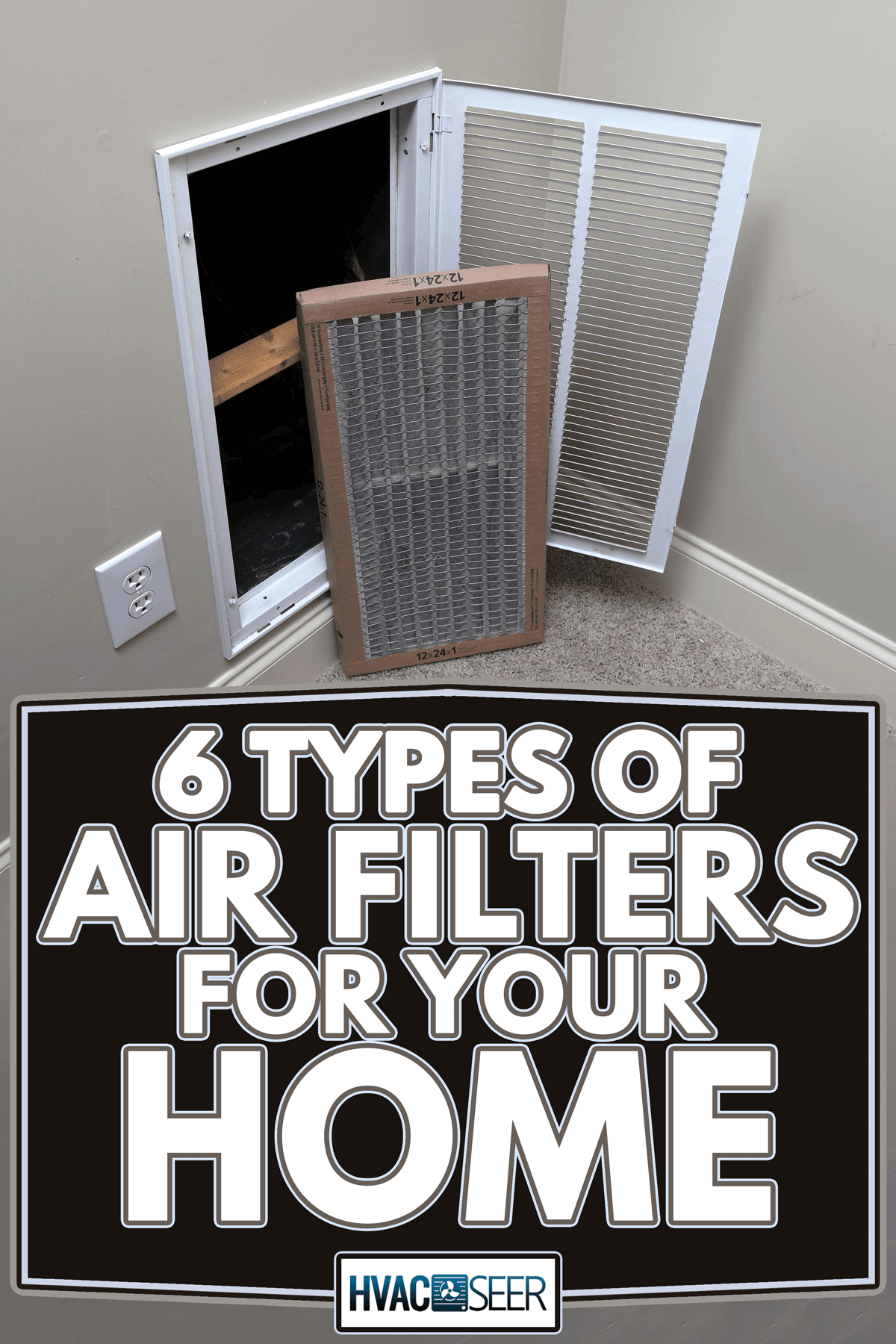
Why Are There So Many Air Filters?
There are many options when you're in the market for an air filter. It raises the question, why are there so many? In addition, does it matter which one you choose?
The options you see above are not the same. You can categorize their quality using a rating system called the MERV scale. Generally, you want an air filter with a MERV rating of around 8-10 for your home.
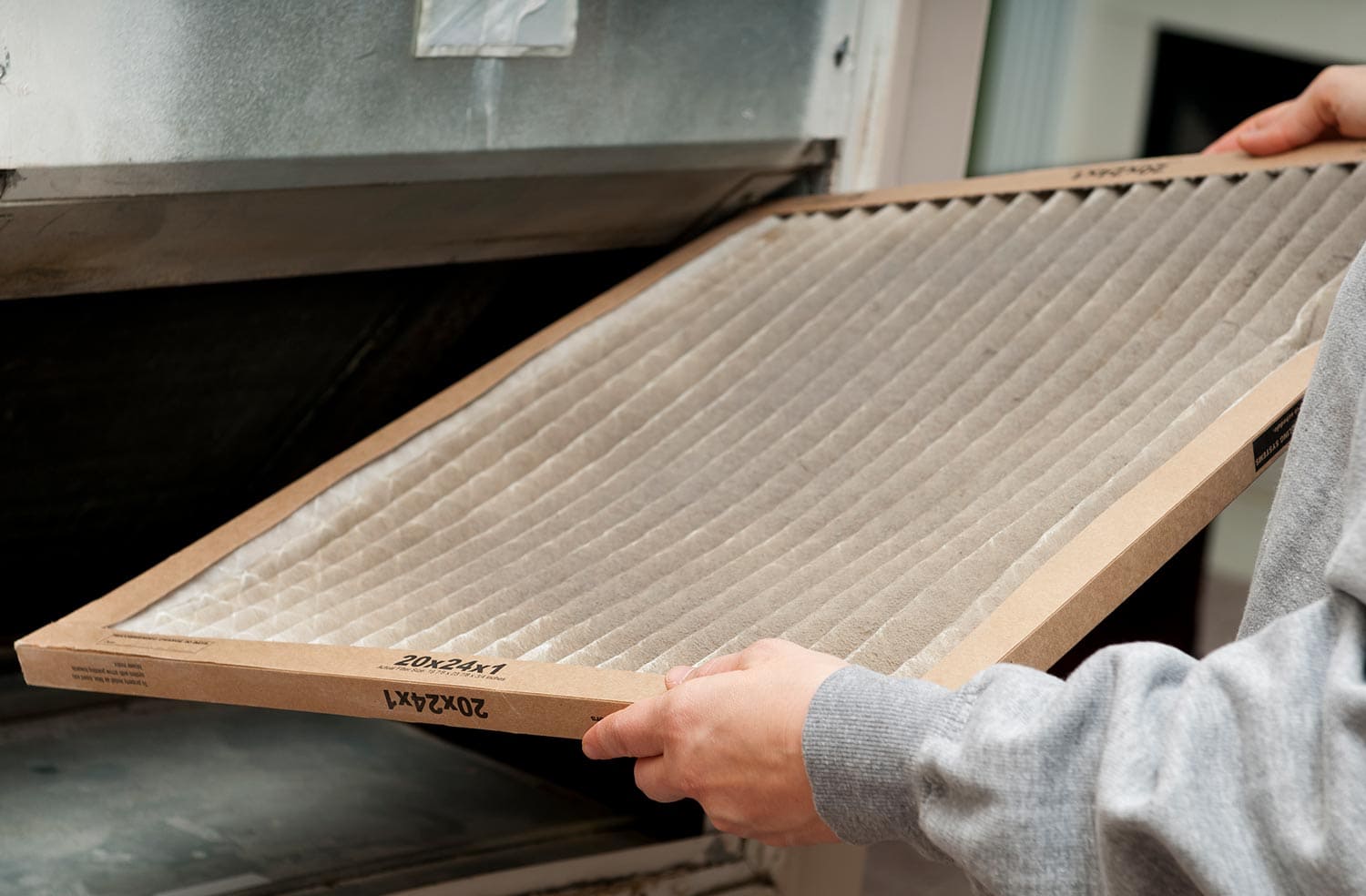
Of course, you'll find that some options have a higher rating than that. You would think it would be better to go for the higher rating. But, that's not the case.
A higher MERV rating indicates the air filter will catch more pollutants. However, if it's trapping more, it's also clogging up faster. As a result, it can make your HVAC system work harder.
Keep that in mind when choosing an air filter. In any case, let's go over the benefits each one offers.
1. Fiberglass Air Filter
Click here to see this air filter on Amazon.
Sometimes cost-efficiency is your primary goal. Maybe you're not as sensitive to pollutants as others. Thus, you won't need to filter the air more.
That's where fiberglass air filters come in handy. They have a MERV rating of around 1-4. Most HVAC professionals refer to fiberglass air filters as throwaway or disposable filters. In other words, they don't last long.
The advantage a fiberglass filter brings is its cost-efficiency and availability. Since fiberglass air filters have a low MERV rating, they're only good at catching large particles. You can find them at any large retail store.
These air filters won't be good enough for you if you have allergies or asthma. Fiberglass air filters only provide a minimal amount of protection. Additionally, you'll need to replace them every month.
Otherwise, you'll let the clog up. As a result, you're also sacrificing efficiency.
2. Washable Air Filters
Click here to see this air filter on Amazon.
Disposable air filters sound nice until it's time to deal with them. What if you don't have a replacement? At this point, you'll have to reuse the old one, which isn't a good idea.
If you don't want to be in this predicament, washable air filters are the alternative. You can think of them as the upgrade from disposable filters. It has a MERV rating of 4.
The benefit to using one is its reusability. You don't have to throw a washable air filter away. So, it's better for the environment since you're creating less waste.
However, it does require more effort to maintain. Sure, you can clean it every month. However, you want to be careful with letting it dry. Otherwise, you create an environment for bacterial growth on the filter.
A moldy air filter doesn't sound too appealing! In any case, these filters give you more control over cleaning and cleaning frequency. You don't have to wait every month. Clean it as soon as you'd like if it helps with allergies!
3. Pleated Air Filters
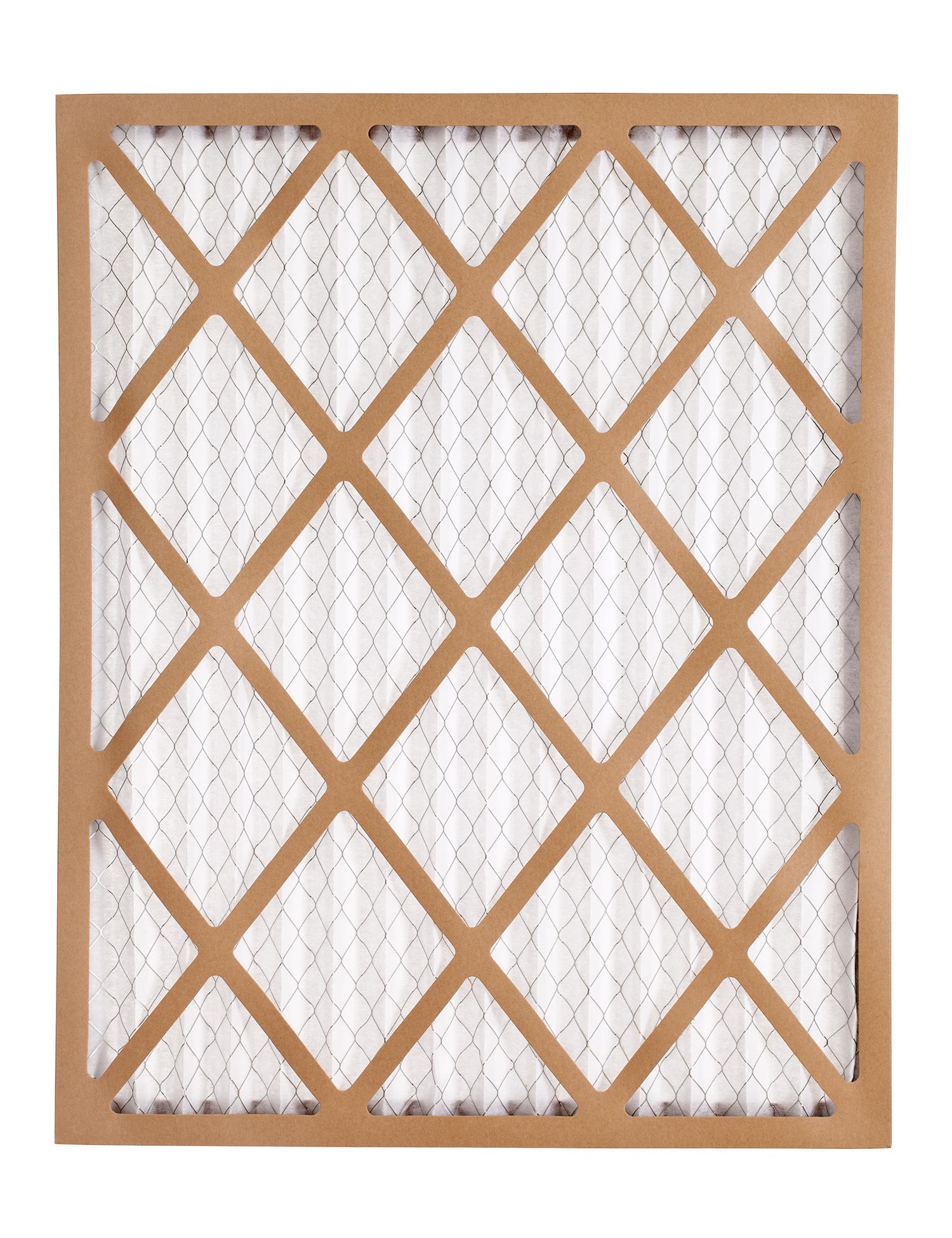
Suffering from asthma or allergies means you're more sensitive to the pollutants in the air. So, you need a filter that can catch more than large particles. If this sounds like your situation, you can consider trying out pleated air filters.
Pleated filters are versatile in their MERV rating. If you want to go the cheaper route, you can purchase disposable pleated filters. Generally, they hold a MERV rating of around 5-8. It can go as high as a rating of 11-13.
Pleated air filters can use different materials. It can be polyester, cotton, or paper. In addition, it's folded like an accordion. This design allows it to perform efficiently.
It's denser than the other options. Thus, it can capture smaller particles. However, that also means it clogs quickly. So, if you'd ask an HVAC professional about these filters, they'd recommend against it.
You need to follow a strict schedule. If you forget to change your filter in time, it can lead to problems with your HVAC system.
4. Electrostatic Air Filters
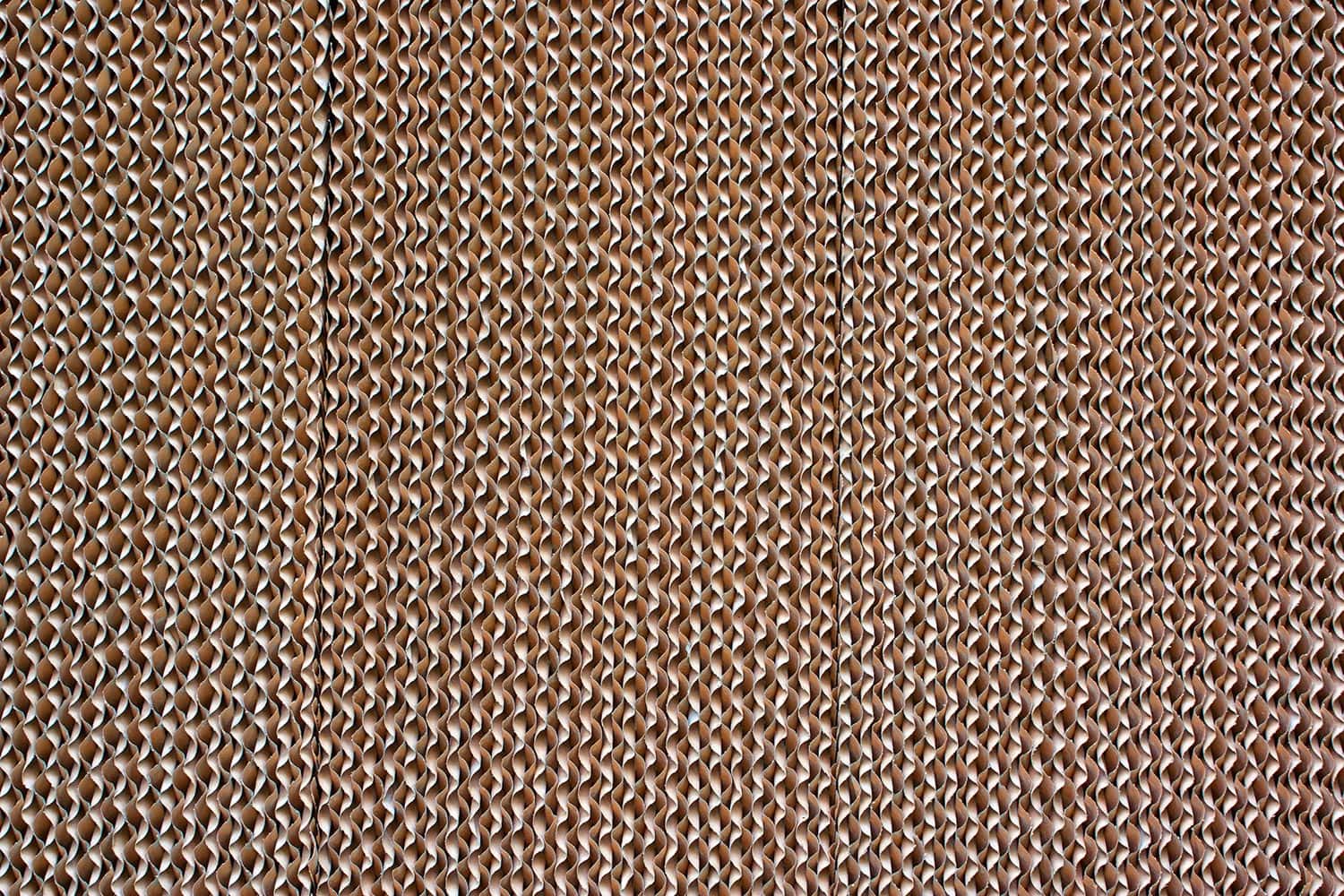
Electrostatic air filters work as you would expect them to. It uses static electricity to give particles a positive charge. It releases the charge as the air passes through the layers of the filter.
As a result, it effectively traps the particles. They offer nearly the same benefits as washable filters. So, you don't need to replace them as often. Instead, you can wash it after a month or two.
Electrostatic air filters tend to offer a MERV rating of around 8-10. There are two types you can choose, disposable and permanent. The permanent one will have a MERV rating of 8. On the other hand, the disposable ones offer a MERV rating of 10.
They're a good choice for those who suffer from asthma or allergies.
5. HEPA Filters
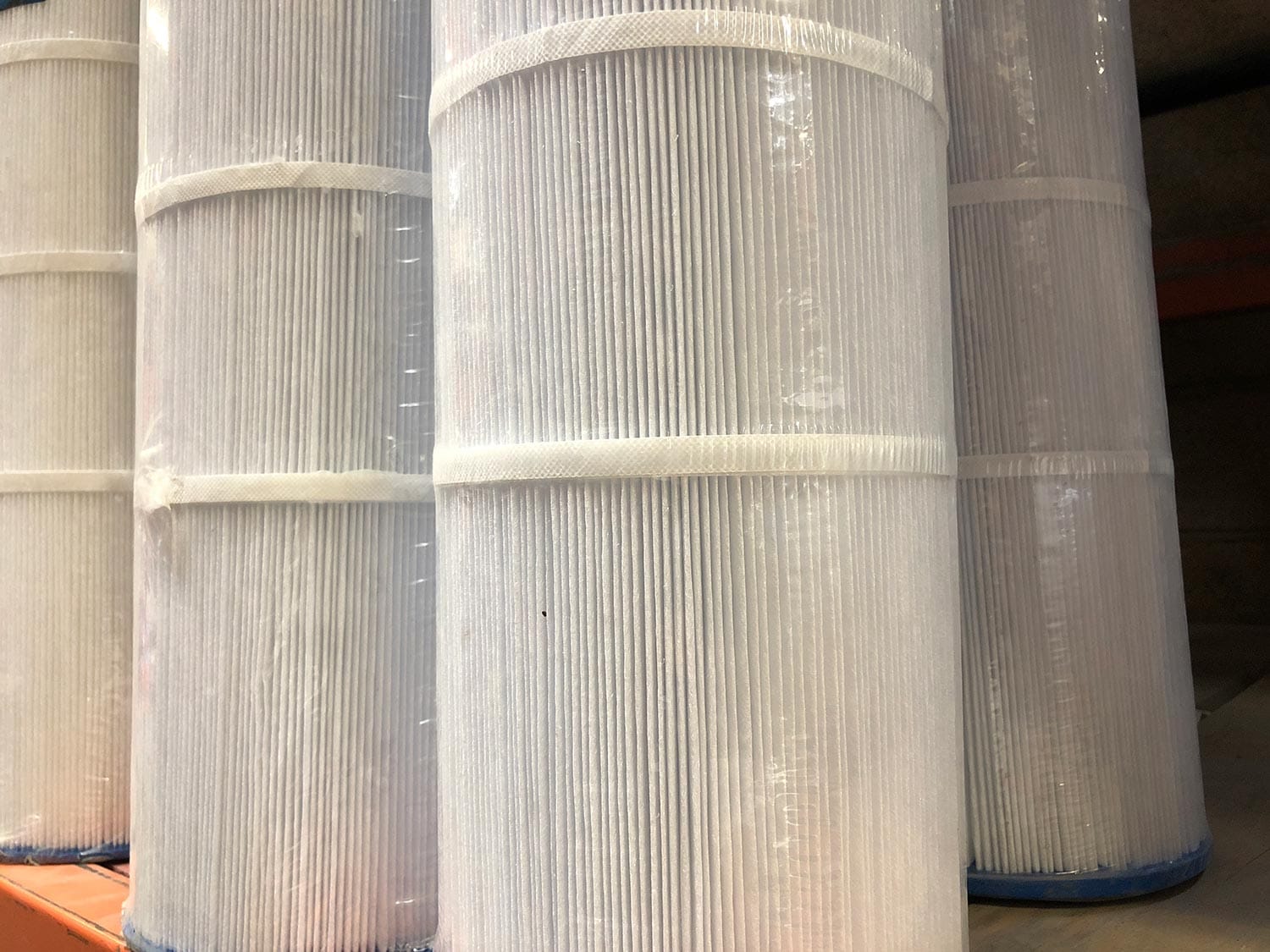
HEPA stands for high-efficiency particulate air. As you can guess, this type of filter is one of the most effective at removing particles from the air. It can theoretically remove 99.97% of airborne particles.
HEPA filters can have a MERV rating of 17 or higher. It won't make sense to use this as a filter for your HVAC system with how effective it can be. Yes, it can catch more particles than the others.
However, that leads to faster clogging. So, you'd have to replace it regularly. That's not to mention how much harder it would make your HVAC system work.
Though that doesn't mean you can't get an air purifier with a HEPA filter. HEPA filters won't work too well for home HVAC systems. But, they can work well if you plan to use them in specific rooms.
6. UV Filters
UV filters aren't your ordinary filters. They use UV lights to kill the DNA of germs, bacteria, mold spores, viruses, and fungi. Thus, they do not help trap particles.
You can think of them as an added layer of filtering. UV filters are permanent. If you want to pair one with your HVAC system, an HVAC technician will install it inside the evaporating unit of your home.
It works by reducing the potential harm pollutants can have on you. After microorganisms pass the UV light, it's absorbed by their DNA. Shortly after, they won't be able to produce the proteins they need to survive.
Those microorganisms will still linger in the air. However, UV lights shorten their lifespan considerably. UV light filters work well when paired with your standard air filter.
What Type of Air Filter Is Best For Home?
It can be difficult to decide with so many options available to you. Of course, our default would be to choose the best filter. However, what would HVAC professionals consider the best air filter for a home?
Generally, the type of filter you should choose depends on your priorities. But, the best filter to choose would be one that doesn't restrict airflow too much. In addition, you shouldn't pick one that doesn't restrict enough airflow.
It needs to meet somewhere in the middle. The best MERV rating for a home filter would hover around 8-10. The cheap, disposable ones in stores aren't good enough to filter small particles. Even if it's better than nothing, the filter is usually close to nothing.
However, the most efficient ones like the HEPA filter aren't necessary for homes. It's more for a commercial setting or buildings that need extra sanitation.
Choosing the Right Filter
Some of you might think it would be okay to skimp out on your air filter. However, the cheapest option isn't the best for you or your HVAC system. If the filter is not trapping pollutants efficiently, it's traveling up in your lungs and the furnaces' coils.
If you suffer from allergies or asthma, a filter with a MERV rating of 10-13 should work well for you. Otherwise, a filter with a MERV rating of 8-10 should provide the best of both worlds.
It's cost-effective. And it traps enough pollutants. Accordingly, it doesn't end up harming your HVAC system.
Here's a YouTube video demonstrating how essential it is to choose a filter with a high enough MERV rating:
In Closing
No one likes to breathe in dirty air. It might come as a shock to you, but you might not be using the best filter for your home. Which one will you choose to replace your current one? Regardless, we hope you found the information above helpful.
Before you go, do you have other filter concerns? Do you have more questions concerning HEPA filters? To learn more, check out:
Can You Wash And Reuse HEPA Filters?
Are you wondering how many air filters a home should have? For more information, check out:


